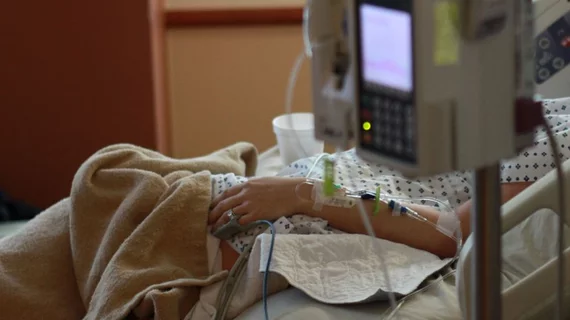Patients admitted with C. diff not a significant source of in-hospital transmission
Hospital inpatients who test positive for Clostridioides difficile immediately upon admission but show no symptoms are highly unlikely to spread the germ to other inpatients.
On the other hand, the bacterium is highly likely to make the carrier patients themselves sick at some point during their stay.
That’s the finding of researchers at the University of Michigan Medical School who had their study published Sept. 18 in Nature Medicine.
For the project, the team cultured specimens from all ICU patients for C. diff and conducted genomic testing on them over a nine-month period.
Analyzing the results, they found more than 9% of the patients tested positive for C. diff upon admission.
Yet, among those who tested negative upon admission, only 1% acquired the infection while in the hospital.
The gap seems to obviate the conventional wisdom of high patient-to-patient transmission involving C. diff.
Oddly sicker by the day
Meanwhile the positive-upon-admission patients were some 24 times more likely than negative admissions to develop a full-blown C. diff infection, symptoms of which can run the gamut from simple diarrhea to life-threatening damage to the colon.
In these patients, some as-yet-unknown hospital factor encourages the germ to flourish in the digestive system, the authors suggest.
They add that antibiotics may contribute but probably don’t alone explain the phenomenon.
In their discussion section, corresponding author Evan Snitkin, PhD, and colleagues comment that C. diff remains a leading cause of healthcare-associated infections despite long-running prevention efforts.
The authors state the low rate of patient-to-patient transmission they found “suggests that currently recommended infection prevention strategies are largely successful in preventing C. difficile cross-transmission from asymptomatic carriers,” at least in an ICU setting.
Wash hands, disinfect surfaces, separate patients
In an interview with HealthDay, Snitkin underscores the importance of such strategies, which prioritize uncompromising hand hygiene, routine use of disinfectants and, whenever possible, single-patient rooms.
Going forward, taking the fight to C. diff in hospital settings “will require improving our understanding of the triggers that lead patients asymptomatically carrying C. diff to transition to having infections,” Snitkin says.
Research paper here, HealthDay article here, the CDC’s C. diff info page here.

